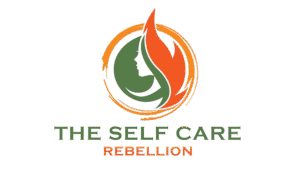We’d already sat in this little office, hidden down the maze of corridors in Prince Philip hospital, four times over the last few months. Each time we had watched and smiled encouragingly while my mum was asked to remember an address, asked to say as many words as she could starting with the letter B and let’s not forget the drawing of the dreaded clock face. Where would she put the hands, on this occasion?
This time was different, though. This time me and dad had a heavier feeling, a sickly, sinking feeling.
It was diagnosis day.
The doctor started talking, his accent making us concentrate hard. I was waiting for an announcement, but he seemed to be talking around the subject but not actually saying what was wrong with my mum, and then my stomach flipped “Did he just slip in the words vascular dementia and Alzheimer’s?”
“I’m sorry what? Both? Are you saying this is her diagnosis?” I suddenly blurted out. “Yes, the vascular dementia is killing the blood vessels, the connections and blood supply and the Alzheimer’s is the brain cells dying from faulty proteins and a build-up of plaque.” He said without even a flicker of emotion. I glanced at my mum, expecting an explosion of fear and devastation, but she seemed to be daydreaming, not taking in what the doctor was saying. I couldn’t look at my dad. I knew that would be game over for us both.

As we walked back to the car, I skipped and messed around, making mum laugh, while telling her how proud I was. I had a smile plastered across my face that gave my mum hope and happiness but hid my truth, my pain, my grief, my devastation.
Our lives had just changed forever.
The woman who gave me so much love and support over my 34 years of life was fading, and she was being replaced by a woman who would need me to be her mum and not her daughter. Without realising and without the universe asking, my mum’s life was flipped in on itself and me, and my dad were suddenly carers.
There are thought to be around seven million carers in the UK which is the equivalent to one in ten people; 58% are women and 42% men. This figure is rising though, and it is believed that it’ll hit 10.4 million by 2030. Three in five people will be a carer at some point in their lives. Becoming a carer means that your priorities change, often without you realising or even being asked. You are suddenly responsible for someone else’s well being, and that comes with a massive heap of emotional, physical and logistical challenges. The love and loyalty we have for the person that we are caring for will often result in carers not wanting to admit to the problems, but they are there, and they do need talking about.
The Carers Trust shared figures on their website from a survey which stated that carers providing more than 50 hours of care a week are twice as likely to report ill-health as those not providing care. They also said that “Carers providing high levels of care were associated with a 23% higher risk of stroke.” This is only a small glimpse through an almost closed door of how caring for another, can influence health and wellbeing.

There may be many moments of joy, the times when your loved one laughs, moments when you realise that you have done a good job or you’ve had success with the dreaded bath or trip to the day centre. There may be moments of love and peace, but there is the other side of that coin that WE MUST TALK ABOUT with raw honesty and no guilt.
No guilt?
As a carer, when was the last time that you felt no guilt? Whatever we do, whatever we give, for us it’s never enough, there’s always more, the list is long, and each day it automatically refills.
What emotions do you feel each day?
How often do you suffer shock or cope with something traumatic?
How is your mental health?
How is your health in general?
Who is taking care of you?
Carers are giving their lives to their loved ones, but there has to be a better way. I have created this list of 18 self care tips for carers from my own experiences. This list is full of ideas to pour a little love, support, health and energy into the carer. I feel that it was the hardest yet most essential list of self care tips that I have ever created and tried to follow. Please read each idea. Please try to put them into practice and give your body, brain and soul the love and support it needs
1 – Observe how you are feeling – When your focus is always on the person you’re caring for, the massive list of chores and just holding everything together it can become normal and can almost feel necessary to push your own feelings aside. If you think that nobody cares, nothing can be done or that you don’t have time for your emotions, you may find yourself shutting them down. Hiding these emotions away may work for brief moments like during a hospital appointment, but for your own long term health and wellbeing and your ability to keep caring for others, you need to become aware of how you feel. Throughout your day, try to become conscious for a moment about how you feel. If you have been shutting down your feelings for a long time, it can be incredibly hard to verbalise what you feel, take your time, jot down words, bullet points and use a thesaurus to break it down accurately.
2 -Write – Write a diary, write on scraps of paper, write poems, write songs, write anything that helps you to release the words trapped inside you. Throughout my journey with my mum, there were many occasions when I couldn’t believe what was happening. It was unthinkable that she’d accused me of taking drugs, it was deeply traumatic when she didn’t know my name, it landed my heart and soul in deep shock when she didn’t know how we were related. Those feelings, that horror and pain needed to be released, I needed someone to hear. I wrote a poem, I recorded myself reading it, and although I’m sharing it here, I don’t need anyone to listen, the writing and the reading and sometimes me listening back is enough. Check out https://theselfcarerebellion.com/project/write-it-out/ for some writing inspiration or grab a book, keep it close by and start jotting down bullet points, doodles and mind maps.
3 – Know your limits and don’t step past them – I say this as someone who has stepped past my limits and may end up doing it again. Yes, it may sound hypocritical asking you not to, but perhaps we could both make a deal to try not to! Pushing past your limits when caring for someone will only result in negative implications for you, your health and well being. It will exhaust and drain you perhaps physically, mentally or emotionally. Stay connected to your body and what you feel and remember that sometimes you need to say “No” and that’s ok.

4 – Join online support groups – My most significant support came from Facebook groups. I have friends who will listen but nobody who really understands what it’s like. Nobody understood until one day I posted in my support group. My mum had barged into my room while I was working, accusing me of a string of offences which made no sense but were full of bitter anger and I snapped back! I was upset and angry at myself and typed quickly and harshly in the group, hitting post and slamming my phone on my bed before proofreading. Ten minutes later I had calmed down and decided to go back to delete the post. To my surprise, I found 20 or more comments from people all over the world. Even as I was reading, more people were commenting. “I hear you, hang in there!” “I did the same thing last week, the guilt is crippling, but we’re doing our best. You must quit blaming yourself” “Sweet child, your mum would hate how she is treating you, she’d hate to know she’d caused such pain. Go and kiss her and forgive yourself.” The support and understanding I received from strangers was overwhelming. I was not alone and nor are you. Search for groups now and be an active member.
5 – Tell friends and family what’s happening – The reception that you receive from friends and family might be varied but make a bold decision with yourself that you are going to be honest with them. I know that there are times when I have made my friends feel uncomfortable by sharing some stories from daily life, but I also know that their discomfort came from not knowing the right thing to say rather than not caring. We don’t want every interaction to be about being a carer and the problems that come with it, but friends and family deserve to know the truth so don’t hide it.
6 – Find out what’s available – Jump at everything that is available and if you don’t know what’s out there, start researching. If you are offered rest bite, counselling or the chance to join a local coffee morning, give it a go. You may later decide that it is not for you, but you won’t know for sure how much it could help unless you give it a go.
7 – Change your choice of words – Quit saying, “I can’t” when considering something you’d like to do and start asking “How can I?” Your brain, even when it is feeling frazzled, is far smarter than you realise. It is capable of problem solving, even the most difficult tasks. If there is a class you want to go to, a night out you want, a holiday you want, don’t ever say “I can’t” always say “How can I?” Allow your brain to work quietly on the problem in the background while you get on with your day. You may find that you suddenly wake in the middle of the night because your brain has figured it out!
8 – Invite people around – I didn’t invite people around for years!! What if it agitates mum? What if they judge my house? What if I can’t handle the situation? Quite recently, I made the decision to invite people for a relaxed dinner party, and it was like a huge sigh of relief. Everyone laughed, mum came and left the room as she pleased. I was still there for her but was able to be with my friends. I made the right decision with this group of friends. They all knew mum, too, which meant that they were extra kind and extra understanding. My feelings instantly changed after that party, and I suddenly realised that having people to the house, however messy it is, is the solution to being a carer and having a social life!

9 – Ask for help – I know it’s difficult. It can feel like a failure and can come with a strong fear of rejection, but asking for helping and accepting the response is a skill that we need to develop for ourselves and our loved ones. When you reach out for support, you could look to your friends. This should be done with care and honesty and as a two-way road where your help and support is also on offer to them. You could reach out to those that you believe should be helping, perhaps other family members. I have done this and have dealt with extremes from a complete loss of relationship with a family member to individuals offering great support. I still believe that it was the right thing to do. Finally, you could reach out to local authorities and local services. I would be tempted to do this periodically anyway. Get advice, grab anything on offer. There is no weakness in asking for help, only strength. You are not failing your loved one but ensuring their needs are the priority.
10 – Find a hobby – Progress and connection are two fundamental human needs. Having a hobby, a class to attend or group like art, swimming club or dancing could reignite your fire and passion for life. Your happiness will undoubtedly impact the person that you are caring for. Remember the point above of changing how you speak to yourself, avoid saying “I can’t” and instead say “How can I?” If getting out to a class weekly really isn’t possible at the moment, don’t stop thinking about the hows but also look at what you could do from home. Perhaps a home study course, maybe learning a musical instrument, perhaps yoga, the possibilities are endless.
11 – Say “Yes!” to help – Earlier I mentioned being able to ask for help. This point relates to noticing when people are offering help and then managing to say yes. Years of practice, feelings of not wanting to drain others or even a fear of if they’ll cope, may put you off accepting but if an offer is there, discuss it and say yes when you can.
12 – Make plans – You need you time. Make a vision board or create a diary with ideas. What would you do if you were not a carer? How could you bring elements of that into your life today? Perhaps you dream of travelling. Perhaps, for now, you could plan a holiday? Look at breaks for you and the one you care for? Look at camper van or camping holidays? Look abroad or at home? Look at rest bite for your loved one while you get away. Maybe a holiday is out of the question, so perhaps there are other things you could do like learn the language of a country you’d like to travel to, study their culture or geography. Don’t rule out the big plans, keep them in mind as your brain may secretly be working on them but then look outside the box, maybe the big plan isn’t doable right now, but there’s plenty of other closely related things that could bring joy, connection or progress.
13 – Allow yourself to feel the emotions – Too many times, I have heard people talking about the mask they wear at home. They cannot share their break downs or sadness. There is also the other extreme that laughter or happiness needs to be hidden because it brings guilt. Your emotions are natural, beautiful and human reactions, they are valid and allowed. It’s ok to laugh, and it’s ok to cry. These feelings need some freedom to be released; otherwise they gain power over you.

14 – Rediscover you again – The feeling of losing your identity is devastatingly common amongst carers, yet is rarely talked about. Your feelings, your experiences, the things you like, love and hate, are all important; the book that made you weep, the advert that made you crave love and the poached eggs that made you reminisce about your childhood are pieces of you. Are you still connected to you and listening to who you are? If you have lost touch with yourself, take some time to reconnect. Instead of believing you like or dislike something because you always have, listen to the truth, observe what your heart and soul is telling you.
15 – Improve your self talk – Your relationship with yourself is the most important relationship you’ll ever have. Imagine how you would treat a friend who was dealing with the same stuff as you, each day. Do you treat yourself with the same kindness? When you struggle or fail, are you supportive and forgiving, or do you beat yourself up? When you see yourself in the mirror, how do you speak to yourself? Self talk is important. It reflects the relationship that you have with yourself and is something that needs to be noticed and addressed; if you find this difficult try these three tricks. One, write down a few affirmations and try to speak them aloud several times a day. Choose lines that resonate with you, perhaps, “I am whole”, “I am enough”, “I am capable”. Two, notice moments when you speak cruelly to yourself and ask how you’d feel if a child overheard you and learnt their own self talk from you. Three, ask yourself if what you are saying about yourself is factual.
16 – Take a few minutes to do the things that make you feel good – Make a list of all of the things that you can do that make you feel good but don’t take much time, money or travel. You could add watching something funny on YouTube, stretching, using a facemask, de-cluttering, giving yourself a manicure or whatever you love. Post that list on a wall where you will regularly see it and make it a daily mission to do at least one thing that you love.
17 – Talk – Talk and release the feelings, upsets, frustrations and even the joys. If you don’t have a community to talk to, look elsewhere. Investigate counselling, speak to a GP about what is available or look at support phone lines. Help is available, there are people who will listen, but you may need to find them.
18 – Invest in your health – This could be its own topic, and I may well write another piece just about this! If you struggle to find the motivation or the energy to take care of yourself, do it for your loved one. Improving your health could be done with some very small steps such as swapping out some of the processed food in your fridge for whole, natural, colourful food; stretching and moving daily, drinking plenty of water, reading or stimulating your mind, interacting with people or finding ways to laugh each day. Your life is important; it is a gift. Perhaps there are moments when you don’t feel it, or it seems that you only exist for the needs of others, now is the time to reclaim you! Do something small for yourself today. Create some little, positive-health daily habits and see where they take you.

The words that I have shared above are from one carer, with love and a huge hug, to another. I know that there are survival days. There are days when doing more than the bare minimum seems impossible, but I hope you still read and allowed a little spark to ignite inside you. Things may not be as you want them to be, but you can control how you react. Yes, you are a carer, but you are also a magnificent human being, one with so much potential for life. Your life is remarkable, your needs are essential, don’t wait.
If you’d like to share your stories of being a carer, where you have struggled or any self care tips, please get in touch at katy@theselfcarerebellion.com
Cover image courtesy of Zoltan Tasi






Recent Comments